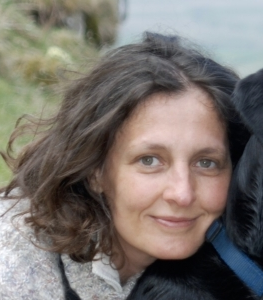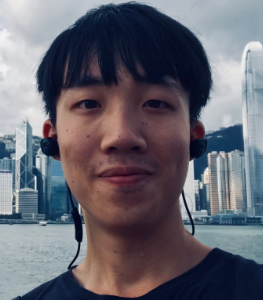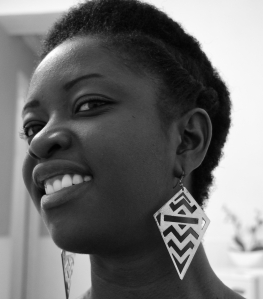Background
Pain and related emotions are difficult to measure in patients with restricted communicative abilities and even in people that can communicate their sensations it is unfeasible to continuously ask them to report those sensations in order to personalize their therapy. This workshop aims to bring together researchers working in the area of recognition, treatment and management of pain and related emotional states.
The workshop is comprised of two parts. The first part invites research submissions covering various topics related to technology for pain management. The second part invites researchers to participate in the EmoPain challenge to foster research in the automatic recognition of pain-related multimodal behaviour in people suffering from chronic pain. The workshop will feature two invited speakers and will end the proceedings with an interdisciplinary panel to complement the presentations and further contribute to set a route map for designing effective technology for the management of pain and related states.
Workshop Focus
We invite submissions of research papers that consider to this topic and address the following aspects (but not limited to):
- Design of benchmark datasets of clinical and chronic pain
- Design of benchmark datasets of not pain associated distress (e.g. itching, confusion, panic, delirium)
- Analysis of multimodal cues and patterns related to distress
- Technologies for monitoring and assessing the severity of distress
- Automated diagnostic methods for pain and distress states
- Personalized coaching and companion technologies for distress management
- Assistive technologies for distress rehabilitation
- Cyber therapy and telemedicine for patients suffering from distress
- Studies investigating the interdependencies between pain and not pain associative affective states
EmoPain Challenge 2019
The EmoPain challenge aims to foster research in the area of pain and related emotion recognition using the EmoPain dataset. More information on the challenge and how to participate are at :
EmoPain Challenge 2019
Paper Submission
Papers should be submitted through
EasyChair
.
Papers should be up to 7 pages (6 pages + 1 page for references)
in
ACII paper format
.
The reviewing process will be double-blind.
Important Dates
Challenge (Postponed, more information coming soon)
Training and Validation Data Available: 14th of June, 2019
Testing Data Available: 19th of June, 2019
Results Uploading Deadline: 24th of June, 2019
Workshop and Challenge Papers (extended)
Paper Submission Deadline: 2nd of July 2019
Notification: 15th of July 2019
Camera Ready due: 19th of July, 2019
Workshop Date: 3rd of September, 2019
Workshop Organizers

Steffen Walter
University of Ulm

Nadia Berthouze
University College London

Amanda Williams
University College London

Daniel Lopez-Martinez
Massachusetts Institute of Technology

Hongying Meng
Brunel University London

Hane Aung
University of East Anglia

Michel Valstar
University of Nottingham

Nic Lane
University of Oxford

Rosalind W. Picard
Massachusetts Institute of Technology
EmoPain Challenge Data Chair

Chongyang Wang
University College London

Temitayo Olugbade
University College London

Joy Egede
University of Nottingham
Program Commitee
Zakia Hammal, Carnegie Mellon University, USA
Raimondo, Schettini, University of Milan, Italy
Abhinav Dhall, Indian Institute of Technology, India
Giacomo Turri, Instituto Italiano di Tecnologia, Italy
Tong Chen, Southwest University, China
Raimondo, Schettini, University of Milan, Italy
Moi Hoon Yap, Manchester Metropolitan University, UK
Maurizio Mancini, University College Cork, Ireland
Huibin Li, Xi’an Jiaotong University, China
Paolo Napoletano, University of Milano, Italy
Massimiliano Pontil, Istituto Italiano di Tecnologia, Italy
Radek Niewiadomski, University of Genoa, Italy
Luca Romeo, Universita delle Marche, Italy
Gualtiero Volpe, University of Genoa, Italy
Bernardino Romera Paredes, Google DeepMind, UK
Agenda: Workshop Program
Workshop Date: 3th, September
Location: Lecture Theatre 1, Computer Laboratory, University of Cambridge, CB3 0FD.
9:15-9:30 Introduction
9:30-10:15 Keynote: Amanda C De C Williams, Real pain, its meaning and relationships.
10:15-10:30 'Pain Detection with fNIRS-Measured Brain Signals: A Personalized Machine Learning Approach Using the Wavelet Transform and Bayesian Hierarchical Modeling with Dirichlet Process Priors' Daniel Lopez-Martinez, Ke Peng, Arielle Lee, David Borsook and Rosalind Picard
10:30-11:00 Coffee Break
11:00-11:45 Keynote: Steffen Walter, State of the art in multimodal sensors and automatic detection of pain
11:45-12:00 'Using a Quartile-based Data Transformation for Pain Intensity Classification based on the SenseEmotion Database' Peter Bellmann, Patrick Thiam and Friedhelm Schwenker
12:00-12:15 'Prediction of Psychological Flexibility with multi-scale Heart Rate Variability and Breathing Features in an "in-the-wild" Setting' Abhishek Tiwari, Jennifer L. Villatte, Shri Narayanan and Tiago H. Falk
12:15-12:30 'Twofold-Multimodal Pain Recognition with the X-ITE Pain Database' Philipp Werner, Ayoub Al-Hamadi, Sascha Gruss and Steffen Walter
12:30-14:00 Lunch
14:00-15:00 Keynote: Rebeccah Slater, The expression of pain
15:00-15:30 Coffee Break
15:30-15:45 'Deep Domain Adaptation for Facial Expression Analysis' Nikolai Kalischek, Friedhelm Schwenker, Peter Bellmann and Patrick Thiam
15:45-16:00 'Improving Automatic Pain Level Recognition using Pain Site as an Auxiliary Task' Hui-Ting Hong, Jeng-Lin Li, Chun-Min Chang and Chi-Chun Lee
16:00-16:15 'Real-time pain detection in facial expressions for health robotics' Laduona Dai, Joost Broekens and Khiet Truong
16:15-16:30 'Learning Bodily and Temporal Attention in Protective Movement Behavior Detection' Chongyang Wang, Min Peng, Temitayo Olugbade, Nicholas Lane, Amanda Williams and Nadia Berthouze
16:30-17:00 Panel: Needs, Challenges and Questions from the real world...and new directions for the field
17:00-17:10 Closing remarks
Keynote Speakers


Steffen Walter
University of Ulm
Title: State of the art in multimodal sensors and automatic detection of pain

